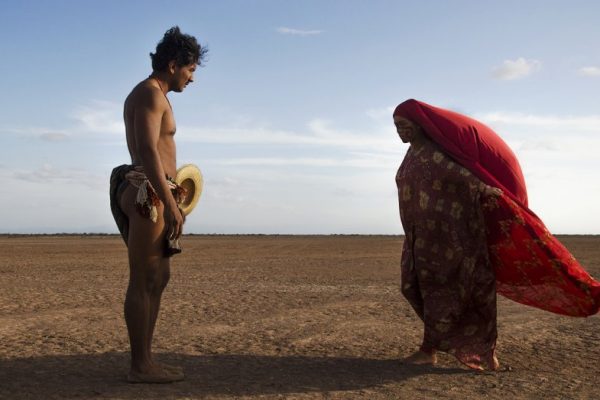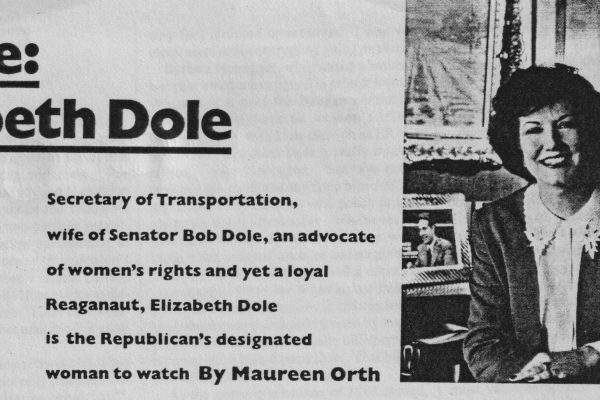Original Publication: Newsweek – March 3, 1975 (written with Eleanor Clift in Atlanta)
“He sure is a little thing. But he’s so cute,” swooned the 30-year-old divorcee. “He’s like a country singer and a rock ‘n’ roll singer together,” sighed the 12-year-old. The object of their adulation, Johnny Rodriguez, 23, is not only country music’s first chicano star but the sexiest singer in country music since Elvis first bumped into the limelight.
Most male country stars sport too much Brylcreem and not enough hair to trigger the fantasies of nubile screamers. But not Rodriguez. At the recent San Antonio Livestock Show and Rodeo he broke his own record by selling out four straight nights at the 10,000-seat Joe Freeman Coliseum, and he required two Texas Rangers, sixteen county deputies and three private bodyguards to get him to the stage without being scratched or mauled.
The black-haired, green-eyed singer-songwriter, who stands 5 feet 6, tore up the crowd by delivering, in both English and Spanish, a versatile program of the eight country hits he’s had in the last two years, including “We’re Over” and “Ridin’ My Thumb to Mexico,” plus rockabilly classics like “Johnny B. Goode,” and the Beatles’ “Something.” In the mid-60s, Charley Pride, the black star, broke the color barrier in country music. Now, the several million chicanos who live in the Southwest have a big country star to call their own.
Such success is heady for a Mexican-Cherokee-Irish kid who a few summers ago was spending time in a Texas jail for rustling three goats. “The deputy who caught us,” explains Rodriguez of his attempt to rustle a barbecue with some friends, “said, ‘I ain’t got enough room in my car for all you little bastards.’ So I took the rap. I had no idea it was a felony.” He didn’t tell his family because his father had told him that if he ever got in trouble, he had to get himself out of it. With nine children, Johnny’s parents didn’t look for problems. They lived in four rooms in Sabinal, Texas (population: 1,800), near the Mexican border. His favorite older brother owned a $12 guitar and taught Johnny to sing in both Spanish and English.
In jail, a Texas Ranger brought Rodriguez a guitar, and while awaiting sentencing he got special food by entertaining the sheriff and deputies. After he got off with three years’ probation, the ranger took him to meet his present manager, James T. (Happy) Shahan. Shahan has a “little ole” 35-square-mile spread in Brackettville, Texas, which contains the sets from the movie “The Alamo” as a tourist attraction. Johnny worked there, breaking horses and playing a village idiot in theatricals for the tourists, and eventually met two of Shahan’s guests, country stars Tom T. Hall and Bobby Bare. “Tom T. told me he liked my singing especially,” says Rodriguez in a husky baritone, “but my writing needed brushing up. He told me to just be honest and make it rhyme.”
Boot: In January of 1972, Rodriguez’s father died of cancer and his beloved older brother was killed in a car wreck. Within three months Johnny set off for Nashville with $8 tucked into his boot. He called Tom T. Hall, who offered him the lead-guitarist spot in his band. Later Hall arranged an audition for him with Mercury Records. Johnny was barely through the first Spanish chorus of the first song when a Mercury executive said, “I’ll sign him.” In short order, he turned out six No. 1 country hits and four gold albums and appeared in a segment of the “Adam-12” TV series, and this summer he expects to star as a cowboy in his first movie, “Rio Diablo.”
Today Rodriguez, because of his innate sex appeal and ability to write warm, soulful songs, is not only country music’s biggest security problem, he’s also something of a new Texas hero. Texas Gov. Dolph Briscoe used him in his 1972 campaign. He was pardoned for goat-rustling, and the Texas Rangers, not particularly known for giving young chicanos a break, received him as an honored guest at their 150thanniversary celebration. To get away from the pressures of stardom and to collect song material in local bars, Rodriguez sometimes disguises himself in old clothes. Recently when someone asked him about his plans for that night, he replied: “I’m tied up now for the evening.”
This article is typed from the original material. Please excuse any errors that have escaped final proofreading.



No Comments